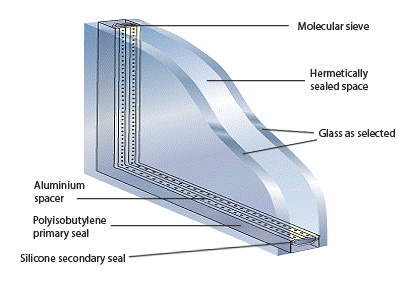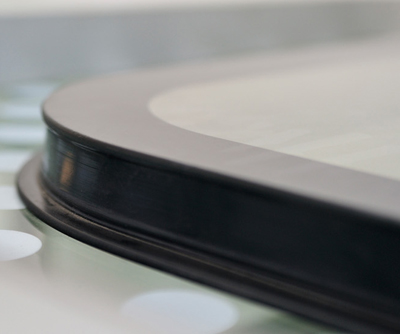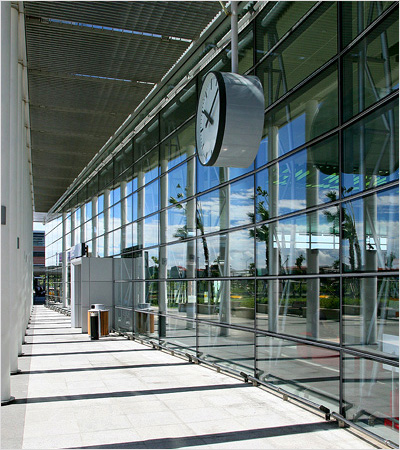Introduction

|

|

|
Insulated Glass Units / Double Glass Units comprises of two panes of glass. The hollow aluminum spacer is then shaped to suit with a strip of polyisobutylene applied to both sides providing the primary seal and acts as an excellent vapor barrier. The spacer which is filled with molecular sieve (Desiccant) to prevent condensation from forming after sealing is positioned between the 2 panels of glass and then pressed together. Finally the silicone secondary seal is applied to the perimeter void around the unit.
A primary seal of polyisobutylene is incorporated into the system which provides maximum protection against moisture vapour transmittance. It also helps reduce thermal edge conductance between spacer and glass, thereby increasing energy savings.
The secondary seal provides a good tensile strength to the glass to glass edge. It provides low-vapor and gas diffusion. Thus providing excellent adhesion between the glass and the metal spacer with short curing times. On the whole providing a superior structural bonding for the total unit.




Desiccant: Or, the drying agent performs the most important role in an IGU; that of absorbing the moisture from the hermetically sealed space.
Secondary Sealant: This sealant is applied on the outside of the unit. It performs several roles, chief among them of providing structural strength.
Primary sealant: First line of defense for the hermetic seal.
Features:
Thermal Insulation: The primary reason for using IGUs is to cut down on thermal heat coming from outside. Thermal insulation primarily depends upon the dryness of the air inside the IGU, as well as the quality of the hermetic seal. Working Principle: IGUs work on the principle of reducing conduction and convection heat transfer across the unit. Dry air is a poor conductor of heat. Due to the air-gap, the conducted heat through glass is reduced significantly as it reaches the second pane. The use of heat absorbing glass, heat reflective glass and Low-E glass will further reduce the load on the cooling system.
Prevention Of Dew Condensation: With monolithic glass, the temperature difference between outdoors and indoors often lead to condensation. However With Insulated Glass Units, insulating effect of the air layer makes it difficult for the glass to become cold and is consequently harder for dew condensation.
Reduction Of Noise: With Insulated Glass Units, noise pollution from the exterior can be greatly reduced. The amount of sound reduction depends on the configuration of the insulating glass.
Office buildings, hospitals, hotels, houses and buildings with exceptionally high heating or cooling requirements.
Buildings that need to have the temperature and humidity strictly controlled such as telephone exchanges, laboratories, computer rooms.
For use in airport control towers, train windows, and other environments that need regulated atmosphere and prevention of condensation.
Airports and buildings near highways and railways that can benefit from the sound insulation.
Thickness :2mm-25mm
Max size:2440mmx3660mm




